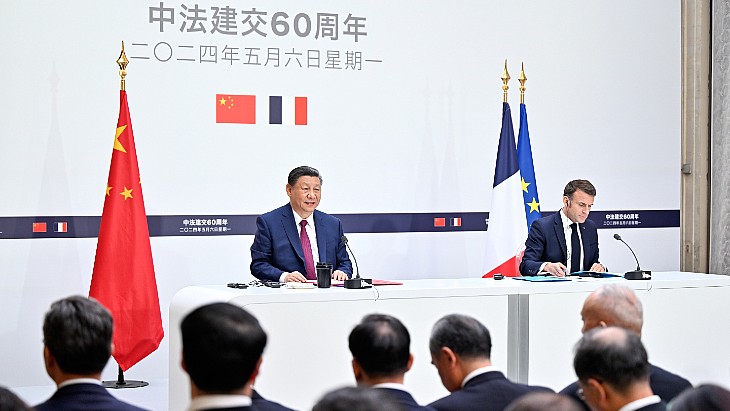Johnson looks to boost UK nuclear capacity
.jpg)
Johnson said nuclear needs to be a major part of the UK's future energy system as a clean, reliable and safe energy source. He set out the government’s commitment to supporting the industry to develop a thriving pipeline of future nuclear projects in the UK in a cost-effective way.
According to media reports, Johnson said he wants the UK to get 25% of its electricity from nuclear power, up from the current 16%. However, almost half of the country's current capacity is due to be retired by 2025 and all but one of its reactors will retire by 2030.
Industry representatives set out the various technologies and projects they are developing, from larger nuclear power plants to small modular reactors, capitalising on both British and international expertise.
The prime minister invited views on how the UK can accelerate rapid progress on securing new nuclear capacity. They discussed the benefits of scaling up investment and removing barriers facing development, agreeing to work together to help projects become operational more quickly and cheaply. Johnson and attendees also reflected on the need to build strong skills and supply chains to support the UK nuclear industry.
Business Secretary Kwasi Kwarteng, Chancellor of the Duchy of Lancaster Steve Barclay and Exchequer Secretary to the Treasury Helen Whately also attended the roundtable.
Organisations who attended included: Nuclear Industry Association, Aviva Investors, Balfour Beatty, Bechtel Group Incorporated, EDF Energy, GE Hitachi Nuclear Energy, L&G, MACE, Nuclear Advanced Manufacturing Research Centre, Nuclear Power Jacobs, NuScale, Rolls Royce, Rothesay Life, Westinghouse Electric Company, Urenco and USS.
"Accelerating nuclear projects is absolutely essential to keep energy costs down, cut expensive gas imports and strengthen our energy security as we move towards net-zero," said Tom Greatrex, chief executive of the Nuclear Industry Association. "That means urgently investing in a fleet of large and small nuclear stations, alongside renewable investment, to deliver the clean, sovereign power we need."
The roundtable comes ahead of the publication of the government's Energy Security Strategy later this month, with renewable energy, nuclear and domestic gas all a crucial part of achieving its aims.
Energy independence
"I think if you look over the last 30 years, governments have taken quite short-term views and this is nowhere more apparent than in nuclear," Kwarteng said in a video posted on Twitter. "Our attitude to nuclear energy, frankly, I think has been woeful.
"I think nuclear power gives you a measure of energy independence, gives you a measure of energy security. And that's why when I speak to energy ministers from around the world, it's the French energy minister that seems somewhat more calm. And they know with their nuclear fleet they've got a large degree of independence, whereas you contrast that with Germany or Italy - they're much more exposed to Russian gas than the French are and I think nuclear is something we should really focus on."










_88592.jpg)

